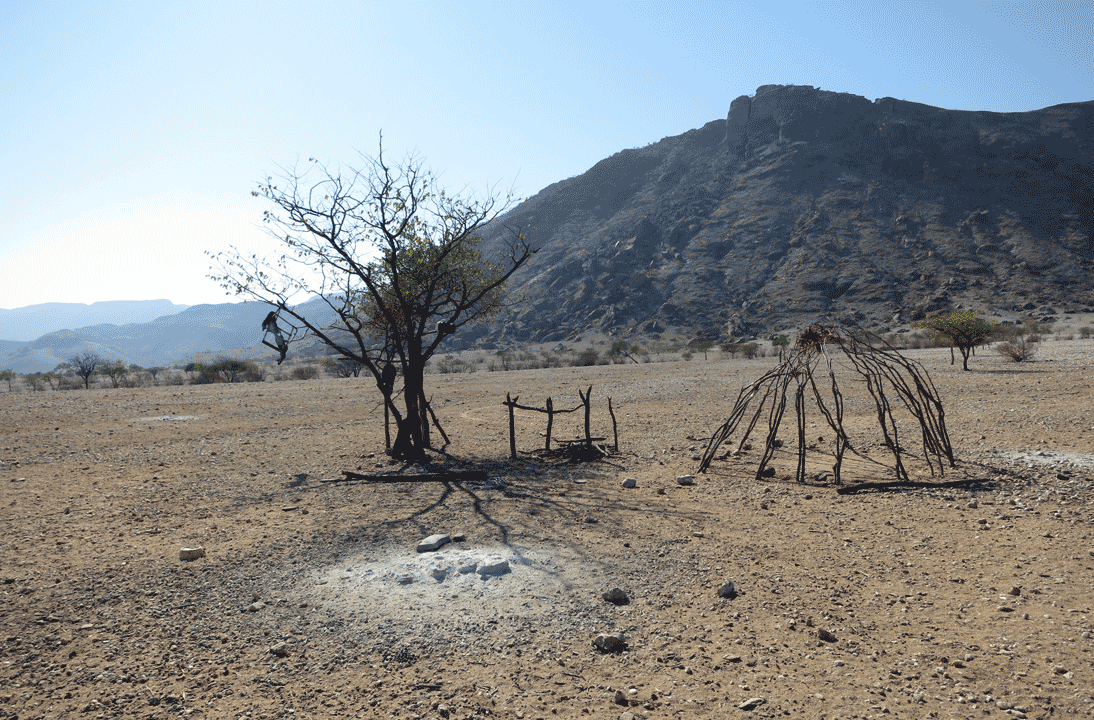Climate change driving up the pressure on Africa to adapt

A cattle post in Kunene region of Namibia, abandoned due to lack of grazing pasture for livestock. Photo: LWF
Africa is probably the continent most vulnerable to the impacts of climate change, a situation worsened by its poor state of ecomonic delveopment and poor ability to adapt, write Lutherans, Pranita Biswasi and Sascha Haupt, of Lutheran educational institutes in Germany.
Extreme poverty, frequent natural disasters such as droughts and floods, and the dependence of agriculture on rainfall increase the continent’s vulnerability to the effects of climate change. Agriculture, food supply and drinking water have always been difficult to sustain in some regions of Africa. Now they are seriously threatened by climate change.
It is likely that average temperatures will rise faster than the global average, especially in arid regions of the continent.
In 2011 there was a severe drought in eastern Africa. Low rainfall led to extreme water shortage, was probably brought about by conditions in the Pacific, including a particularly strong La Niña phenomenon. Indications are strong that another reason for this drought was the temperature change on the surface of the Pacific.
In addition to drought, another consequence of climate change that can be felt in Africa is the melting of glaciers that occur on high mountains. The glaciers are important for people and for agriculture because their melt water feeds numerous rivers. Dr Angela Olotu, a theologian from Tanzania, who was a guest on the Climate Synod of the Evangelical Lutheran Church in Northern Germany, in September 2014, reported that rivers that vigorously led water in her childhood are now temporarily dry.
Social impact and adaptation
In many regions of Africa, climate change has a particularly strong impact on people's lives because agriculture plays a very important role. Crop failure has an immediate and dramatic impact on the income and food security of many people.
In the sub-Saharan region, an average of one in four people are reported as being malnourished. Further tightening on already scarce resources also creates new potential for conflict, which increases the risk of war.
Climate change directly affects people’s health. Heat stress and the incidence of malaria and dengue fever are increasingly observed. Victims are mainly women, children and the elderly.
Both socio-cultural and technological measures are needed in Africa in order for the continent to adapt to climate change. Combining the traditional knowledge of local populations with modern scientific knowledge seems to be most effective in this regard.
Even with numerous adaptation measures, the risks to social and ecological systems associated with climate change will be high, even if global warming is limited to 2°C. With a warming of 4°C or more, as is to be feared without drastic counter-measures, adjustments would only be possible to a limited extent.
Action on climate change
The inhabitants of central and east Africa who are severely affected by climate change contributed to climate change in only a minor way. Only small quantities of fossil fuels are burned in these regions. A big problem is the loss of forests, an important carbon reservoir. Forests are mainly cut down to produce firewood and clear the way for arable land.
One person addressing this issue is Sabine Winkler, who has been sent to Tanzania by the Evangelical Lutheran Church in Northern Germany. She teaches farmers in the northern Pare Diocese about sustainable agriculture and is involved in building biogas plants. Biogas from agricultural waste products as fuel is a good alternative to wood. In addition, a tree nursery is going to be opened in Pare to conduct reforestation.
And as a great role model when it comes to climate and environmental protection - not only for Africa – are those countries in which plastic carry bags are strictly forbidden, such as Rwanda and Chad.
By Pranita Biswasi, of Christian Jensen Kolleg, Germany, and Sascha Haupt, of the Info Desk on Climate Justice of the Center for Global Ministries and Ecumenical Relations of the Evangelical Lutheran Church in Northern Germany. Information sourced from the Intergovernmental Panel on Climate Change and Wikipedia.




